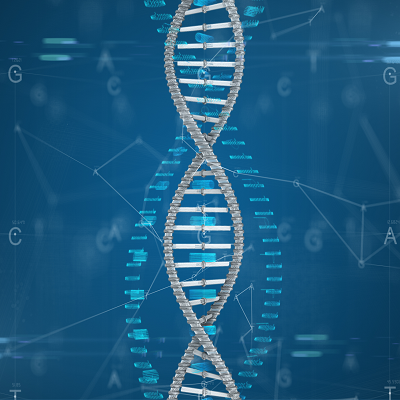 FDA approves first topical gene therapy for treatment of wounds in patients with dystrophic epidermolysis bullosa
FDA approves first topical gene therapy for treatment of wounds in patients with dystrophic epidermolysis bullosa
The U.S. Food and Drug Administration (FDA) said on Friday it has approved Vyjuvek, a herpes-simplex virus type 1 (HSV-1) vector-based gene therapy, for the treatment of wounds in patients six months of age and older with dystrophic epidermolysis bullosa (DEB) and with mutations in the collagen type VII alpha 1 chain (COL7A1) gene. Read More
 Revvity, AstraZeneca ink license agreement for next-gen base editing tech
Revvity, AstraZeneca ink license agreement for next-gen base editing tech
Revvity this week announced a nonexclusive license agreement with AstraZeneca for the technology underlying a next-generation modular gene editing platform. Read More
 Alzheimer’s disease and modifiable risk factors: Genetic associations revealed
Alzheimer’s disease and modifiable risk factors: Genetic associations revealed
A genetic association study comparing participants with Alzheimer’s disease and control participants without Alzheimer’s disease found novel genetic associations between high high-density lipoprotein (HDL) cholesterol concentrations and high systolic blood pressure and a higher risk of Alzheimer’s disease. Read More
 Boundless Bio closes $100 million Series C financing to advance precision oncology therapies
Boundless Bio closes $100 million Series C financing to advance precision oncology therapies
Next-generation precision oncology company Boundless Bio on Tuesday announced the closing of its $100 million Series C financing, which will be used to advance the clinical development of its BBI-355 extrachromosomal DNA-directed oncology therapy. Read More
 Clinical trial begins for universal flu vaccine candidate
Clinical trial begins for universal flu vaccine candidate
Researchers at NIH’s National Institute of Allergy and Infectious Diseases (NIAIDs) have developed an experimental universal influenza vaccine. Read More
 Biomarker predicts response to chemo-immunotherapy in lung cancer patients
Biomarker predicts response to chemo-immunotherapy in lung cancer patients
Researchers have found a biomarker that provides an early indication of whether a patient is responding to chemo-immunotherapy. Read More
 Genetic variant protects against Alzheimer's disease
Genetic variant protects against Alzheimer's disease
For many years, researchers followed a patient who, despite being genetically predisposed to develop early-onset Alzheimer’s disease, beat the odds. Their research, published Monday in Nature Medicine, led to the discovery of a new genetic variant that provides protection from Alzheimer’s disease, a pathway for resilience to dementia, and the identification of a brain region to target with therapeutics. Read More
 Novel glioblastoma treatment shows promising results
Novel glioblastoma treatment shows promising results
Toronto’s University Health Network (UHN) neurosurgeons have developed a novel glioblastoma therapy that combines the injection of an oncolytic virus directly into the tumor with intravenous immunotherapy. The results, published Monday in Nature Medicine, found that this combination therapy prolonged survival rates, providing clinical benefits to over half of the patients studied. Read More
 FDA approves first drug to treat agitation associated with dementia due to Alzheimer’s
FDA approves first drug to treat agitation associated with dementia due to Alzheimer’s
The U.S. Food and Drug Administration (FDA) on Thursday announced the supplemental approval of Rexulti (brexpiprazole) oral tablets for the treatment of agitation associated with dementia due to Alzheimer’s disease. Read More
 Video interview: Detecting potentially treatable causes of cognitive decline
Video interview: Detecting potentially treatable causes of cognitive decline
In this video interview, Dr. Michael K. Racke, medical director for neurology at Quest Diagnostics, spoke to Stephen Wellman, director of content and strategy at LabPulse and The Science Advisory Board, about the challenges associated with identifying those who do not have Alzheimer's and may have reversible conditions that mimic dementia. Read More
Conferences
Science Briefs
Member Rewards
Earn points for contributing to market research. Redeem your points for merchandise, travel, or even to help your favorite charity.
Research Topics
Interact with an engaged, global community of your peers who come together to discuss their work and opportunities.
Connect
Tweets by @ScienceBoard






